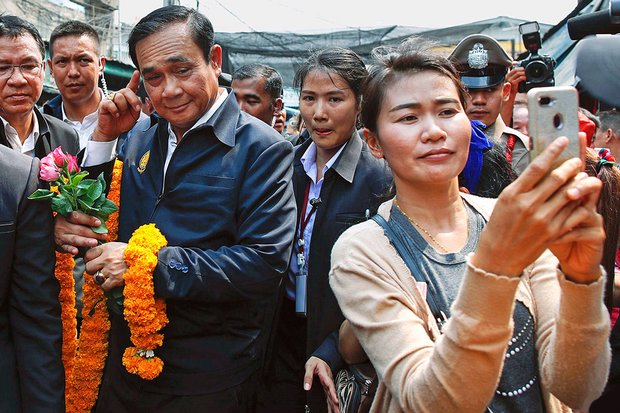Prime Minister Prayut Chan-o-cha on Monday denied reports saying that the government sent supplies to Myanmar's army, known as the Tatmadaw, to support them.
Pictures on social media showed trucks carrying food across the border from Thailand to Myanmar, with reports saying they were destined for the Tatmadaw.
The Myanmar army ousted civilian leader Aung San Suu Kyi in a coup on Feb 1 and ended 10 years of democracy. Since then, thousands of people have been rallying in the streets of Myanmar's major cities against the junta.
At least 249 people have reportedly been killed by Myanmar forces since the coup, prompting criticism.
According to Reuters, Thai media reported that the Thai army had recently supplied 700 sacks of rice to Myanmar army units on Myanmar's eastern border, citing an unidentified security official as saying it was on the orders of the Thai government.
Gen Prayut yesterday explained that decades ago Myanmar people moved in and lived on the mountainous area straddling the border between the two countries, prompting the authorities to hold talks and persuade them to come down from the mountains and settle on areas of lowland.
They cooperated and asked that food supplies be sent to them, Gen Prayut said, adding that Thai authorities agreed to their request for a humanitarian reason.
"Since the area has not yet been clearly demarcated, no one in the area has been allowed to cross the border and buy food on the Thai side of the border, but they can order goods directly from vendors," he said.
"Therefore, don't use the issue to accuse the Thai government of supporting Myanmar's military rulers. That's not true."
Since the Feb 1 coup, the Myanmar government has not asked for help from Thailand, Gen Prayut said, adding that the Asean Charter stipulates a policy of non-interference in domestic affairs of member states.
Army spokesman Lt Gen Santipong Thampiya also dismissed claims that the government had sent food supplies to Myanmar's military.
He said border crossings nationwide were still open under Covid-19 control measures and the customs law regulating the cross-border movement of goods and people.
Currently, traders can transport their goods, particularly essential items and consumer goods, across the borders, Lt Gen Santipong said, but transporting items prohibited by law and military armaments are banned.
He also warned against fake news which could hurt foreign relations. "In the delicate situation involving the neighbouring country, it is important to present news carefully," Lt Gen Santipong.


